Explainer: Why is Iran calling for disarming of Kurdish terrorists by Sept.19?
By Aref Karimi
Iraqi Foreign Minister Fuad Hussein is expected to visit Tehran on Wednesday a week before the ultimatum issued by Iran to the Iraqi authorities to disarm and relocate terrorist groups from the Kurdistan region expires.
At a joint press conference with his Austrian counterpart Alexander Schallenberg in Baghdad on Tuesday, the top Iraqi diplomat said Baghdad is committed to the security pact with Tehran.
“We have taken the necessary measures to purge armed groups from areas along the border between Iraq and Iran,” Hussein stated. “And for that purpose, I will travel to Tehran tomorrow to hold talks on the matter with Iranian authorities.”
Since Iran and Iraq reached an agreement to disarm and expel Kurdish terrorist groups from the semi-autonomous Kurdistan region in northern Iraq last month, both sides have held a series of talks at various levels to expedite the process and alleviate Iran’s legitimate concerns.
In their phone conversation on Saturday, Iran’s President Ebrahim Raeisi told Iraqi Prime Minister Mohammed Shia al-Sudani that any act of provocation by terrorist and separatist groups based in the Kurdish region undermines regional security and will not be tolerated.
On Monday, Iran’s Foreign Ministry spokesman Nasser Kan’ani said the ultimatum given to the Iraqi authorities to disarm and relocate terrorist groups by September 19 will not be extended.
Also on Monday, prominent Kurdish leaders held a series of meetings with Iranian officials, both in Tehran and Erbil, and reaffirmed their commitment to ensure security on the joint border.
Iran’s Foreign Minister Hossein Amir-Abdollahian, in his meeting with Bafel Talabani, leader of the Patriotic Union of Kurdistan (PUK), in Tehran stressed that the presence of terrorists in Iraqi Kurdistan region violates the Arab country’s constitution and threatens ties with Iran.
For his part, Talabani, according to a statement issued by his office, said their goal is to “achieve stability and coexistence in the region, for which we support responsible dialogue and understanding and believe that this is the only way to overcome the problems and achieve national goals.”
In Erbil, the President of Iraq’s Kurdistan Region, Nechirvan Barzani, sat down with Iran's Ambassador to Baghdad Mohammad Kazem Ale-Sadeq and said his government is committed to the security deal.
When is the deadline to disarm terror groups?
Only a week is left until September 19 when Iraq has pledged to disarm and relocate anti-Iran terrorist groups in the Kurdistan Region in line with a security agreement reached last month.
At the end of August, Kan’ani said Iran and Iraq have concluded an agreement, under which the Iraqi government takes on the commitment to disarm Kurdish terrorist and separatist groups.
He underscored that the September 19 deadline will not be extended in any way, and stressed that Iran will consider other options to ensure its security if the agreement is not implemented in time.
Kan'ani also said that Iraqi officials have notified authorities in the Kurdistan Regional Government (KRG) of the terms of the deal, and the United Nations agencies are also aware of Iran's stance.
Iraq’s Kurdistan region, which shares a border with Iran, has become a safe haven for terrorist groups who often launch attacks on Iranian soil and also allow external forces to target the Islamic Republic.
Iran’s Intelligence Minister Esmaeil Khatib, speaking during a television program on Sunday, said the autonomous region has become a stronghold of terrorists and separatists seeking to harm Iran.
Iranian forces have many times launched aerial strikes at terrorist positions in the region and repeatedly warned the authorities in Baghdad and Erbil to act against the groups backed by the US and Israel.
What are these terrorist groups?
Terrorist groups operating in northern Iraq against Iran include the so-called Komala Party, the Democratic Party of Iranian Kurdistan (PDKI), the Kurdistan Freedom Party (PAK), the Kurdistan Free Life Party (PJAK) and Khabat.
They often cooperate as a network and are connected to other similar groups. The PJAK is affiliated with the Kurdistan Workers' Party (PKK) which operates in Turkey, and Khabat has close ties with the Albania-headquartered Mujahedin-e-Khalq (MKO) terror cult.
All these terrorist groups are relics of the Cold War with outdated ideologies imported from the former Soviet Union. They were created as Moscow's puppets with the purpose of destabilization and expansion of Soviet influence in West Asia.
The self-declared ideologies of all these terrorist groups are only for advertising since they actually act as guerilla mercenaries and cooperate with anyone who offers them shelter, weapons and money.
Although they all present themselves as fighters for Kurdish minority rights, they were very happy with the decades-long hosting by the anti-Iran Baathist regime of Saddam Hussein, which committed terrible crimes against the Iranians and Iraqi Kurds.
They later changed sides and, despite their supposed socialist principles, cooperated with Western regimes that heavily funded them and sometimes gave shelter to their leaders.
So, they do not enjoy a reputation even among the Kurdish population and the two largest parties of Iraqi Kurdistan, namely the Kurdistan Democratic Party (KDP) and the Patriotic Union of Kurdistan (PUK).
They all number only a few hundred members, and their modus operandi is reduced to guerilla warfare in the mountains and attacking Iranian border guards.
How did Kurdish terrorist groups fuel riots in Iran?
In recent years, they have also participated in hybrid warfare against the Islamic Republic together with their foreign sponsors, most notably last year when they used terrorist attacks with the aim of fanning the flames of deadly riots engineered by the West.
In October last year, Iran’s Interior Minister Ahmad Vahidi confirmed that Western- and Zionist-backed terror groups in northern Iraq were leading the riots in Iran to foment sedition and set off secession.
In his speech on Monday to the representatives of the southeastern provinces, Leader of the Islamic Revolution Ayatollah Seyyed Ali Khamenei said last year Iran was hit by a cocktail of subversive action.
According to him, the American regime interpreted areas with ethno-religious differences as Iran's weak points and focused on inciting disorder in the southeast of the country and Iranian Kurdistan.
In September last year, amid riots in Iran, the Islamic Revolution Guards Corps (IRGC) carried out an artillery attack on the headquarters of these terrorist groups in Iraqi Kurdistan.
The IRGC at the time said the attack was carried out after the “arrival of terrorist teams and a large cache of weapons” in northeast Iran “to foment unrest.”
Who are the foreign troublemakers?
In the same way Saddam Hussein saw them during his aggression against Iran in the 1980s; certain Western regimes also see these Kurdish terrorist groups as their assets or pawns against Iran.
Among them is the US, whose support is indisputable and confirmed by the highest American officials, including Congressman Dennis Kucinich and military intelligence advisor Brent Scowcroft.
Since the presidency of George W. Bush, Washington has seen such groups as tools of aggression against Iran, similar to the situation in Syria where, in cooperation with Kurdish militants, they keep the northeast of the country occupied under the guise of self-determination.
The position of anti-Iranian terrorist groups in northern Iraq is most comparable to former camps, Ashraf and Liberty, which survived for 13 years with American military support despite Baghdad keeping MKO on its official list of terrorist groups.
The subsequent relocation of MKO terrorists to Albania by American planes and the use of their members for long-term anti-Iran hybrid war exposes the true intentions of Washington toward such organizations.
The statements of the politicians of Iraq and the Kurdistan Region also confirm that hosting anti-Iranian terrorists is not their will, but they are forced to do so by the US.
The same compulsion exists in the case of the very presence of the remaining US military bases, despite years of calls by the Iraqi parliament for foreign troops to leave the country.
Former US President Donald Trump threatened to seize Iraqi billions if US troops were expelled, and the administration of Joe Biden has followed the same hard-nosed policy.
Among other troublemakers is the Israeli regime, of which there are well-documented cases of training, and supplying weapons and equipment to anti-Iran terrorists.
Israeli Prime Minister Benjamin Netanyahu has openly called for the disintegration of Iraq and Iran.
Furthermore, hostile policy is also carried out by France, which provides safe havens to leaders and members of terrorist groups that regularly attack the Iranian embassy in Paris, and whose lobbyists like Bernard Kouchner and Bernard-Henri Levy openly advocate for Kurdish separatism.
Aref Karimi is a Tehran-based writer and research scholar.
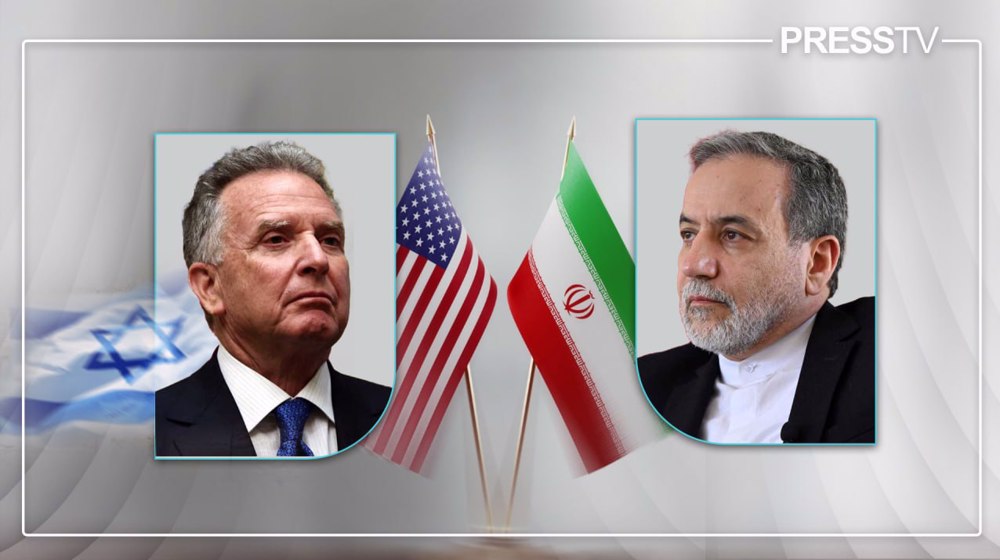
Iran-US nuclear talks: A historical overview and future expectations
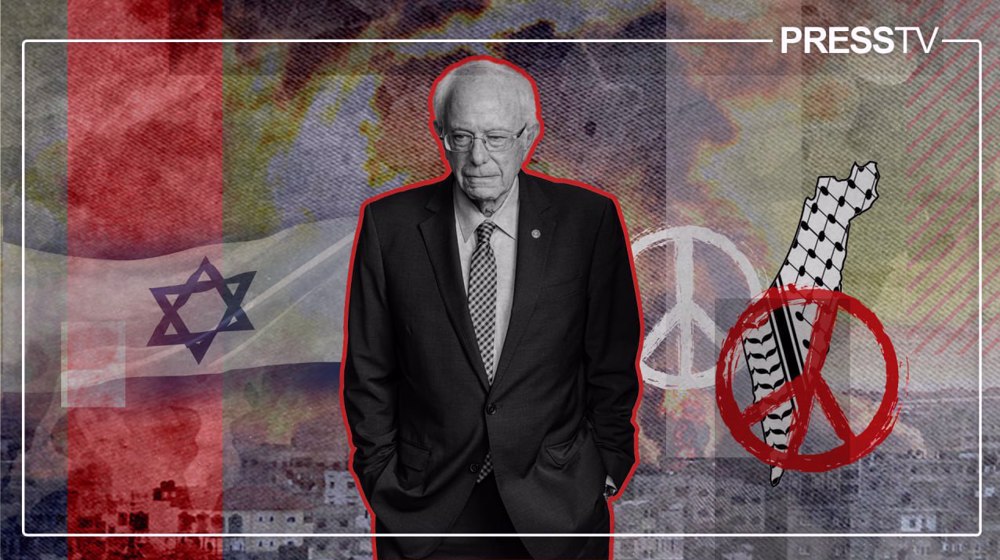
How Bernie Sanders condemns genocide in Gaza without actually condemning it
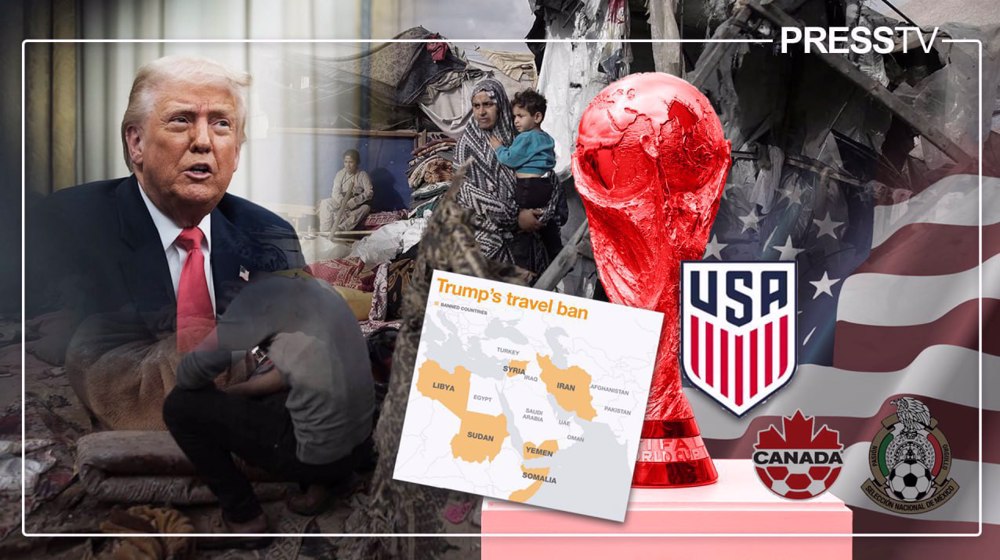
Trump's proposed travel ban should bar US from hosting 2026 FIFA World Cup
Armed Israeli settlers storm West Bank village, damage private property
Progressive talks: Iran, US reach ‘better’ understanding on certain principles
China halts liquefied natural gas imports from US amid tariff war
Iran-US nuclear talks: A historical overview and future expectations
Exclusive: Iran-US indirect nuclear talks in Rome take place in 'positive atmosphere'
Humans of Gaza: Dina Zaurab, an artist who immortalized martyrs before becoming one
Promising prospects in Iran’s ammonia industry
US Supreme Court blocks Trump’s deportations under antique law


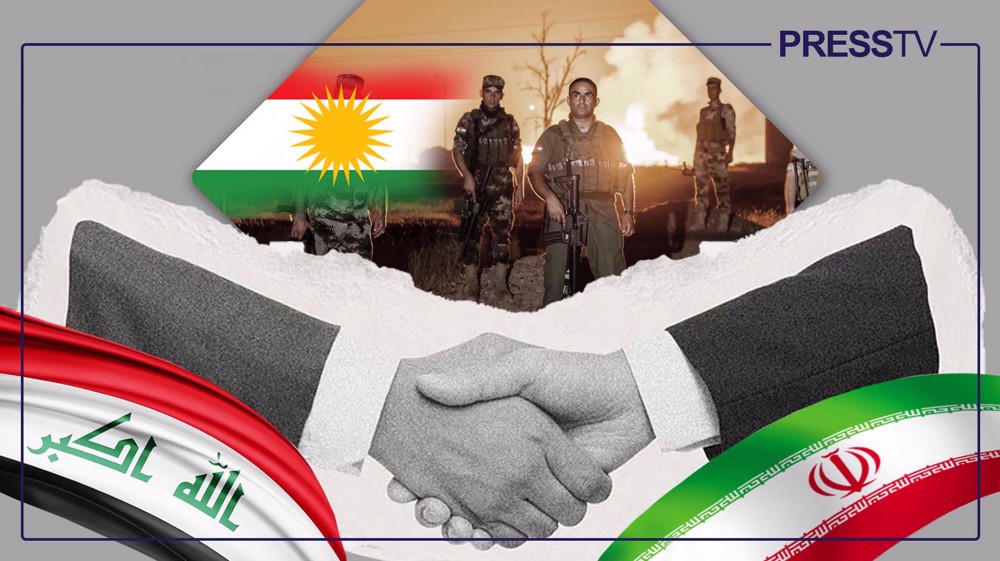



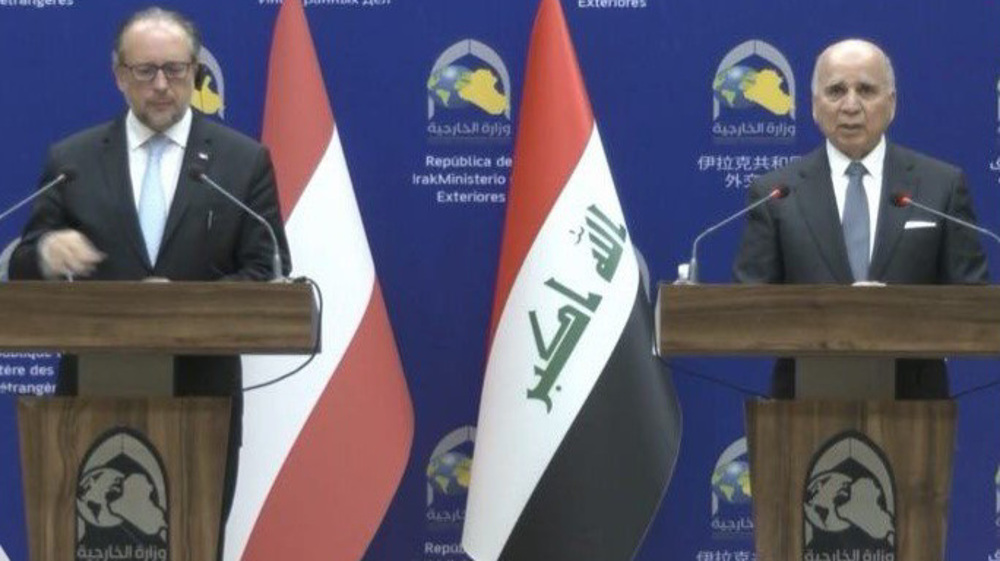
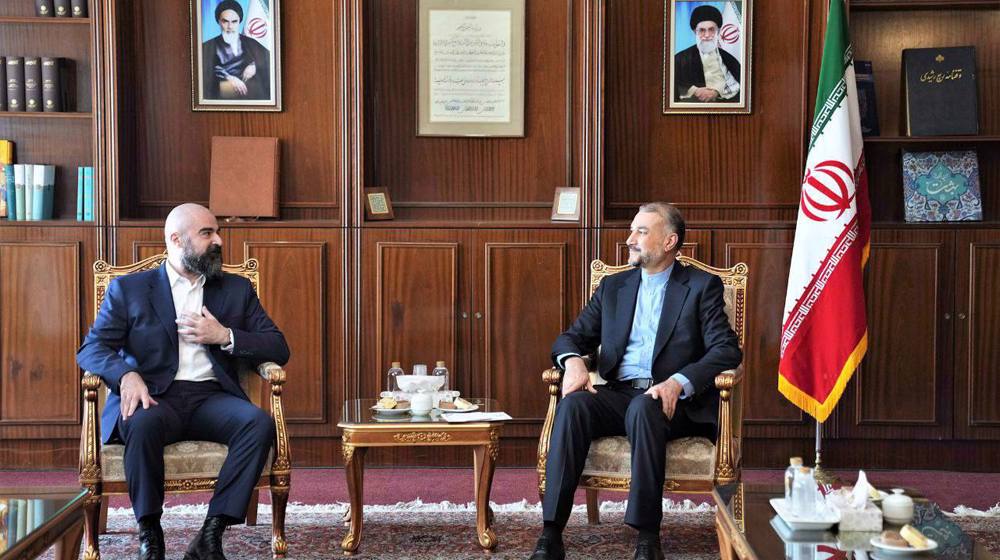
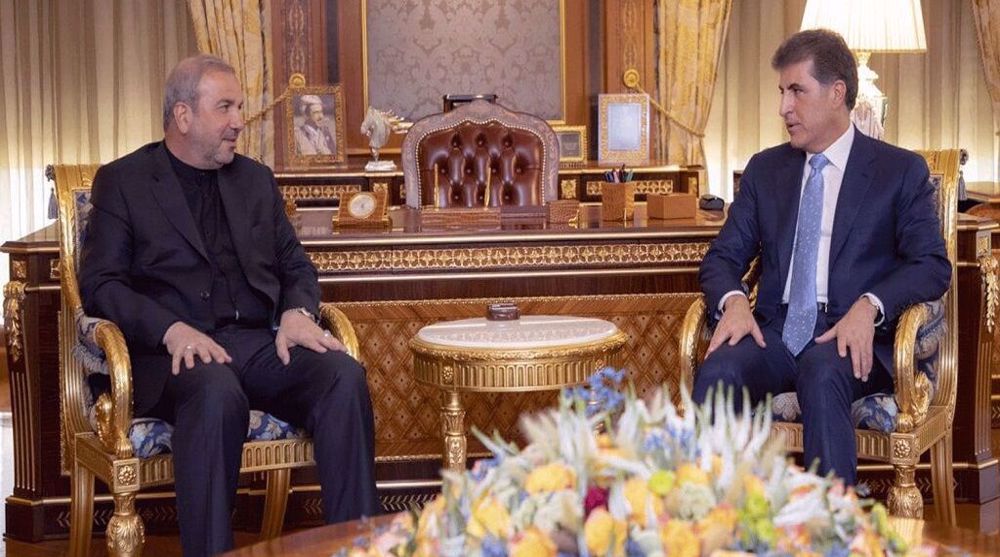
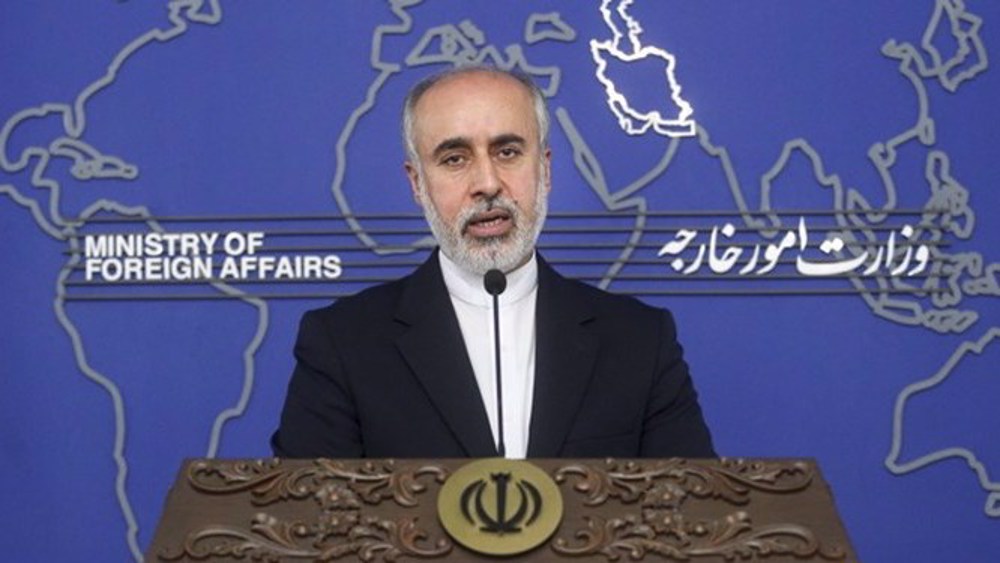
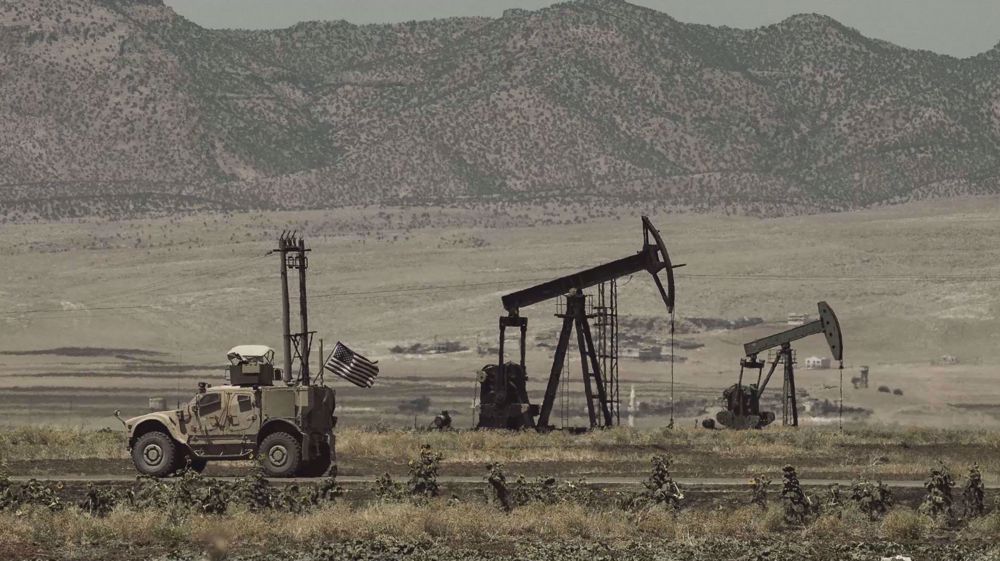

 This makes it easy to access the Press TV website
This makes it easy to access the Press TV website